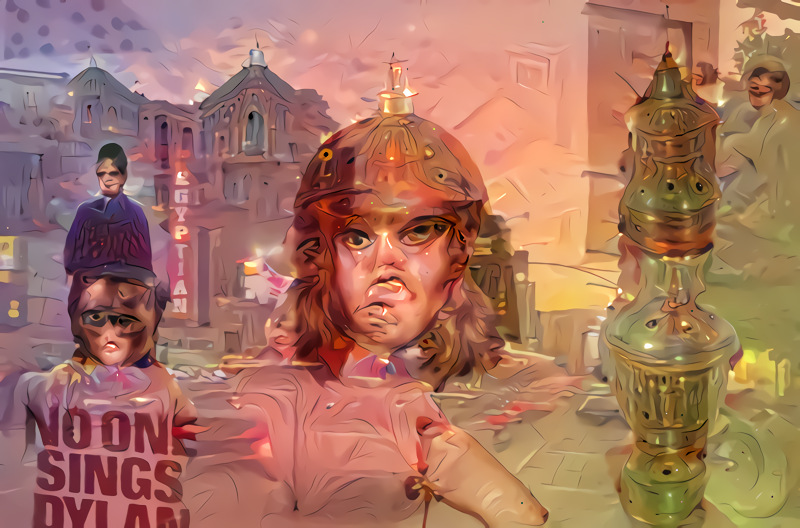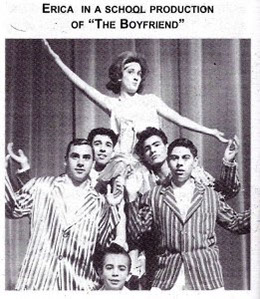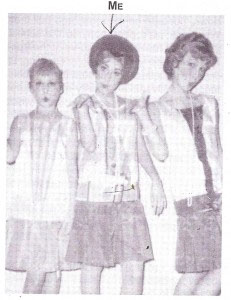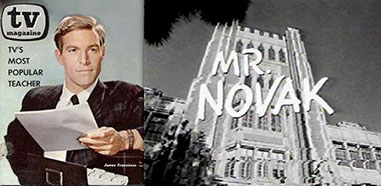

Hollywood Teen
By Steve sullivan
Excerpted from glamour girls #16 SPRING 2002
“What I went through in those years is what everyone went through. Kennedy being killed, the Vietnam War, the whole drug generation. It was a hard time–especially for someone born and raised in Hollywood, we were right in the middle of it.”
“I was always getting in trouble, and I was always one of the kids who got caught. One night when I was thirteen, I stole my mother’s car and drove down Hollywood Boulevard [about 8 or 10 blocks from her home]. In those days, Hollywood Boulevard was “it”, just bumper to bumper on the weekends. I had no clue how to drive. I don’t even know how I got that far. I hit a parked car right in front of a policeman, then was thinking I was going to outrun him.”
She was taken to the police house and the officer called her mother. “Her response was, ‘can you keep her overnight? They said no, so she came and got me. I was grounded for a year and half, although I could always find a way to go off somewhere.
“I was smoking pot in high school, when that was considered very bad.” She ran with a “pretty tough crowd” and some of them paid the price. “A lot of my friends didn’t make it. We were pretty wild, especially when we got out of high school.”
Her parents divorced while she was a teenager. “My parents were always getting into very volatile arguments, and there were constant threats of one or the other moving out.”
Many of the arguments “were about me— ‘do you know what your daughter’s doing up on the roof, she’s smoking pot!’”
Eventually, after the divorce, her mother “began going with a guy, and eventually he moved in and sort of replaced my father for a while, although he never did for me. He and my mother and my sister basically became a family unit, but I was an adolescent and locked out of that. I didn’t like him for trying to take my father’s place, and I was angry at my mother. We’d all go out camping in the desert and I’d always wander off by myself.”
Fred and Madeleine Graff eventually reconciled, remarried when Donna was 16 or 17, and remained together for the rest of their days.
Even as a kid, she had enjoyed putting on shows for her parents. At her junior high school in Silver Lake and John Marshall High School in Los Feliz, the acting bug bit more seriously, helped along by two drama teachers whom she greatly admired.
“I had a major crush on one drama teacher, Gerald Gordon, although I knew he was gay. He had a summer program, the Los Angeles Youth Theater, so I was in plays both in school and in his program.”
She played the role of Maggie in the musical The Boyfriend, was one of the Shark girls in a summer production of of West Side Story, and was in another summer staging of Finian’s Rainbow.In the latter show “I tore my ligaments, because I was doing a backflip and didn’t do it properly.”
For a Freeway Players production of Tevye and His Seven Daughters, which ran for several months at the Zephyr Theater on Melrose Avenue, Erica understudied and worked the lights.
“I loved doing plays. I was trying to be responsible and to do something I had a passion about. I loved the feeling of hanging around people who were talented and hard working. It’s a powerful feeling being around theater. The camaraderie, doing something over and over and each time it means something totally different. It’s sort of like therapy—your interpretation, that moment.
"You can say a line a million different ways. I really enjoyed being someone that I wasn’t—someone who was out there and who was not shy. I got out of my own life that way, it was a rush.”
When she would later work with Russ Meyer, one quality she really admired about him—that “he was totally committed to his work”—was a quality she recognized in herself.
“I know that feeling, and it’s the ultimate. It’s better than sex. It’s better than anything when everything is happening in your art.” During this period, she appeared as an extra in an episode of NBC’s Mr. Novak starring James Franciscus, which was actually shot at her high school.
Young Erica’s early flirtation with the fast lane as a teenager included participation in the drug experiments associated with author Ken Kesey. Having previously participated in a government drug research program that helped inspire his novel One Flew Over the Cuckoo’s Nest, Kesey expanded his explorations into LSD and other hallucinogenic drugs, most dramatically when his Merry Pranksters drove cross-country to New York in their day-glo painted bus in 1964.
In the summer of 1965, Kesey began hosting Acid Tests at his home in La Honda, sometimes with the Hell’s Angels in attendance. Erica did not take part in those events, but in something closely related.
“Someone would rent or lease a club for one night and it would be called The Acid Test. A week later the club might be in a totally different place, usually around Sunset Boulevard or Melrose, but it would be the same people and the same scene.
“You paid at the door and everyone inside would be high on LSD—they handed out tabs of pure acid manufactured by a doctor. Different movies would be showing on every wall, with psychedelic purple and green strobe lights or lasers flashing, and hypnotic music like the Grateful Dead blasting away on tape.
“I went once every week or two weeks for about six months, not long after I finished high school.” Erica recalls Timothy Leary attending at least one of the sessions, but never met Ken Kesey, and doesn’t know for sure if the Acid Tests were the author’s events—although they certainly bear every trademark of the Kesey sessions.
“I was taking a lot of LSD, almost everyday, and I wasn’t coming down. Someone must have told my mom, and she came to where I was living in Laurel Canyon. I was huddled in a corner. I hadn’t changed my clothes in maybe a week. The guy I’d been living with had moved out and I just stayed. I remember her sweeping me up and taking me to UCLA Psychiatric in Westwood. I was in there for about 40 days. I was diagnosed with LSD psychosis and they put me on a major thorazine medication. I guess you could say I had a little bit of a troubled growing up.”
Erica left home when she seventeen, after graduation from high school. It was shortly after leaving home that she had met a young man while taking a summer course at Hollywood High. Bob Gavin was his name; he was an artist who painted.
It would be a short-lived relationship. A close friend of Bob’s named Dennis (who would pop up again in Erica’s life a few years later) was a drug dealer, and Bob agreed to help him. This led Bob to associate with other dealers who were less loyal than Dennis. “He was set up not by the police, but by the federal agents. This guy had already been busted, so he set up Bob so he’d be cut loose. He showed up and said someone would pay big money to get a load of of pot and hashish out of the country. We’d been living with his mother in Hollywood, and had just gotten our own apartment. The day we moved in, and were just still getting our phone installed, is when these people called.
“The next day, Bob went out to meet this guy who’d been selling pot for years. Not long after that, at 7:30 in the morning, there a knock on the door. The guy was looking for Bob, and I knew it was trouble. I closed the door, and started grabbing whatever there was to get rid of it. When I got to the bathroom, they broke in and shoved me on the couch.
“I was crying. It was a nightmare. They took me to jail until they got Bob. The federal bust was technically not about drugs, but on tax evasion—you have to pay taxes on what you sell, even if it’s marijuana. It was on the advice of our lawyer that we get married, so that I wouldn’t have to testify against him. So we got married [sometime around the Fall of 1965], but unfortunately he was convicted, and he got seven years in jail, although he didn’t serve the full sentence. I didn’t know what the hell I was going to do.”






